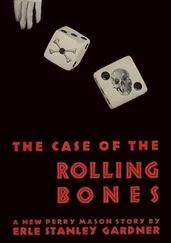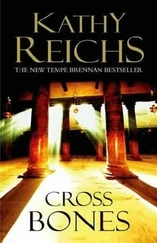Called in on Jezzie at midnight, offering to take her for coffee at the Up All Night in Spitalfields, but she was slumbering. Called to rouse Dolores in Aldgate at 1 a.m., to reiterate the importance of her rising early for shorthand lessons; she remains grumbly and ill-tempered about the fate of Max, her fancy man, now awaiting trial, and sent me away (aided by her unpleasantly suspicious landlady). Home at 3 a.m., to find a note from Mrs P pushed under my door, saying a Miss Harris had been calling at the house, and that she, Mrs P, didn’t think she could stand ‘no more of this kind of thing’. I slumbered in my chair, dreaming of nannies, fish, gingerbread houses, birdcages and an urchin girl asking, ‘Why have you brought me here?’
Woke at 6 a.m., resolving to visit Barbara H as soon as possible.
Journals of Harold Davidson
London 8 September 1930
To the Windmill Theatre with Joanna Dee, my aspirant ballerina, saved since June from patrolling the streets of Fulham. A charming show, with new costumes and burlesque songs that I always enjoy at this venue, although a new crudeness has, I feel, crept into the stage tableaux. Naked girls in neoclassical posings, impersonating ‘Hylas and the Nymphs’, offer an affecting sight to those who follow the charming tales from Homer, and who can, like I, look upon the pink areolae of the water babies without immoral yearnings. But I felt their sinuous writhings around the loins of a rather well-built Hylas went beyond the boundaries of strict classical authenticity. Delightful, nonetheless. Miss Ariadne Love (not, I suspect, her name at the baptismal font) was a dream in a lurid skirt of dangling bananas and cigars, singing ‘Take Me Back to Old Havana, Where the Jasmine’s Still in Bloom’ most affectingly. Dear Joanna thrilled by it all and clapped her hands together spontaneously in glee. I hope her enthusiasm will direct her steps at the Kennington Dance Academy towards more, shall we say, decorous roles in the classical repertoire than those on show tonight.
I spotted Sir Tristram Pope in the crush, and saluted him with a cry of friendship, hoping to introduce him to my young companion, who enjoys meeting titled men who may help fund her balletic studies. To my surprise he hurried away, like the Fleeing Man in a German melodrama, but not before I spied his lady companion – none other than Eleanora Gilpin, late of the Pig & Whistle in Bow. Well, well, how pleasant that she has found so eminent and moneyed a patron. And how splendid she appeared in her expensive broad-brimmed hat, though its elaborate finery, clamped to her shingled blonde mane with hair clips, is hardly the thing for an evening at the theatre. I must call on her, in her Bethnal Green apartment, to check on her progress, assuming she has not found herself in a more glamorous address!
London 10 September 1930
Paid a visit last night to my dear Rose Ellis in Camden. She is back with her parents for two years now, settled and comfortable, if a little frayed at the edges. Her father, retired at sixty from too many years’ exposure to building-work dust, greeted me with his habitual Irish decency and pressed upon me the bottle of potato poteen he keeps in a kitchen cupboard. It is a reflex action to him, to offer this moonshine concoction to every caller to his house. He should know my teetotal habit, he should remember the hundred times I have waved away his poisonous generosity when visiting Rose, yet still he persists. Poor man! His household is a dimly lit haven for Rose, after her many difficult years of confronting both the demon Alcohol and the sadness that periodically descends upon her beautiful violet eyes and pitches her beyond every stratagem of Christian reassurance.
Mr Ellis and I conversed desultorily for several minutes while waiting for Rose to appear. His talk is full of irritating Catholic asides: ‘I’ve a few good years left in me, Father, DV,’ he’ll say, meaning Deo volente , ‘God willing’, an admirable ejaculation maybe, but not one that is found on the lips of any responsible Protestant believer, smacking as it does of a Muslim Arab punctuating his pronouncements with ‘Insh’ Allah’ at every turn. And I am not ‘Father’ to him or anybody else except for my children. That tiny papist homage, that pregnant ‘F’ word, hangs between us with a small dusting of sarcasm, as if he regards me as a fake pastor, a second-best clergyman.
‘Rose, well, she has her ups and downs,’ he said, ‘but on her bad days, there’s no reasoning with her. A sponge of misery she is now, Father, soaking up every small hardship like the parched earth soaks up rain. I pray to the Blessed Virgin to intercede with the man upstairs to put the light back in her eyes, but, sure, what can you do when she spends all her time broodin’ and snifflin’ and …’
After fifteen minutes I could stand his maudlin defeatism no more (or his dreadful Mariolatrous heresy, or his insulting demotic about the redeeming God as a kind of first-floor lodger) and asked, with an abruptness bordering on incivility, if Rose was at home. He left the room, and I cooled my heels and examined their dingy wallpaper and endured the smell of greens and bacon, until the door reopened to admit my dear Rose, steered into the room by her rebarbative parents who stood alongside her like sheepish gaolers.
Her golden hair was matted into slender ringlets, making her long, soulful face even longer – an El Greco saint, or martyr. She was clad in an old-fashioned Victorian white blouse with an amber bijou clamped at the neck, an unbecoming brown skirt in some fusty fabric, the whole ensemble enveloped in a housecoat of patterned wool that reached to the floor.
‘Rose, my dear –’ I clasped both her hands, as I surveyed her over-lagged frame – ‘how good to see you! Forgive the lateness of this visit, but I was attending a homeless benefit in Euston, and my mind was filled with thoughts of you. It has been too long since our last meeting. I left you in June hoping that you might attend one of my Saturday soirées in Vauxhall. But seeing no trace of you, I reasoned that you had more pressing social engagements.’
I stopped. Released from the supporting hands of her parents, her body swayed back and forth like an aspen under the breath of a summer zephyr. Her eyes sought to focus on mine, and a sigh escaped her lips with a fugitive whiff of mint.
‘Harold,’ she said thickly. ‘Harold, I –’ As her thoughts struggled to form themselves into words, I realised she was the worse for drink. The aroma of toothpaste was overpowering.
‘I been dreaming of horses,’ she said, in a dull monotone, ‘great white horses with streaming hair, galloping along the seashore. I thought I was riding one of them, only the horses in front kept charging off to the right, and the others that rode faster than me were galloping off to the left and all I was doing was running towards the sea, with no horse under me at all, and what good was that?’
She was sadly disturbed, my lovely Rose. Her father gazed at the floor neutrally, as if this were an occasion of blame and, wherever the blame could affix itself, it was certainly not to him. Her mother held my gaze as if asking how much of her daughter’s current state was due to our friendship over the last ten years.
‘Rose,’ I said, ‘I am shocked to see you like this. Sit down beside me here and tell me how you are, while your mother –’ I waved an importuning hand, confident that no mother in England would refuse the classic clergyman’s request – ‘will bring us a cup of tea and leave us to discuss your troubles in private.’
Rose sank obediently down on the threadbare ottoman and, gathering her housecoat around her spindly shoulders, gave me her attention. Her parents slunk away. I had not criticised their obvious neglect of my old friend; and their relief was palpable.
Читать дальше












